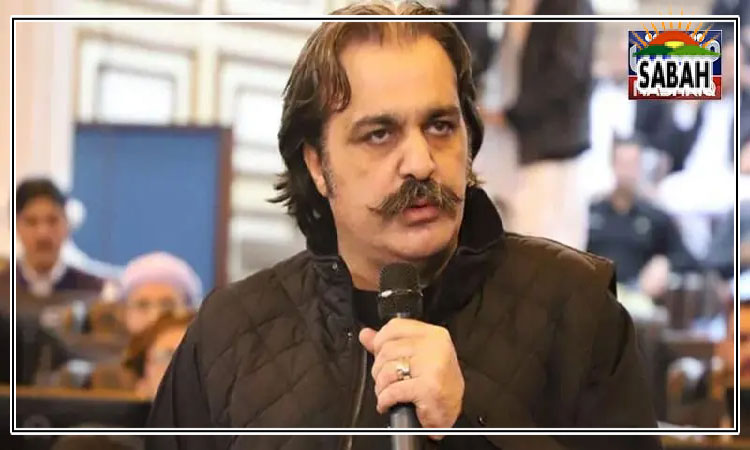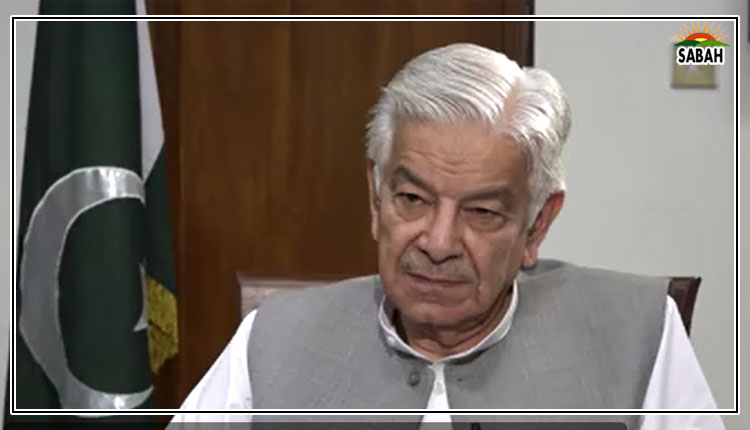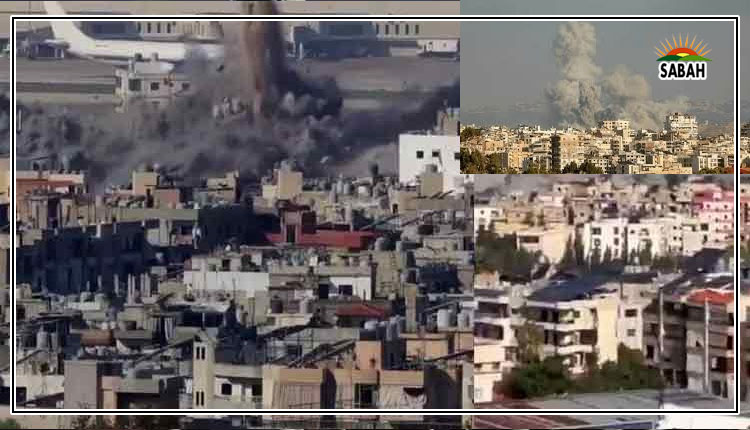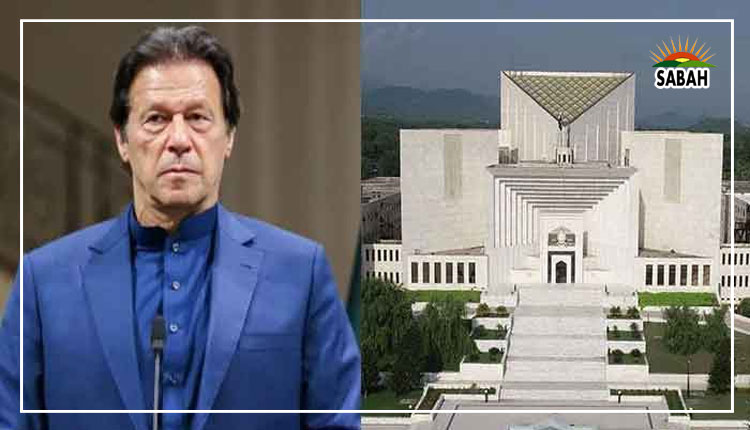SC seeks an explanation from Imran Khan on the events of May 25, 2022, related to the party’s first long march
ISLAMABAD, Nov 02, (SABAH): Supreme Court of Pakistan on Wednesday sought an explanation from Pakistan Tehreek-e-Insaf (PTI) Chairman Imran Khan on the events of May 25, 2022, related to the party’s first long march through his counsel Salman Akram Raja, during the hearing of a contempt of court case against him filed by federal government through secretary interior affairs.
The federal government filed a contempt of court plea against the PTI chairman in the Supreme Court over his long march to the federal capital.
In its petition, the government said, “Imran Khan is making announcements to attack Islamabad”, which it claimed was a violation of a court order. It urged the apex court to direct the PTI chief to ensure the implementation of its orders related to protests and sit-ins.
A five-member laeger bench, headed by Chief Justice of Pakistan Justice Umar Ata Bandial and comprising Justice Ijazul Ahsan, Justice Munib Akhtar, Justice Yahya Afridi and Justice Sayyed Mazahar Ali Akbar Naqvi was hearing the case, while former Supreme Court Bar Association President Chaudhry Muhammad Ahsan Bhoon Advocate appeared in the court.
Bhoon informed the court that he is representing PTI lawyers Dr. Babar Awan and Faisal Fareed Hussain, who had been served notices.
At this, CJP Bandial said that the court didn’t serve any notices but only sought replies from the two lawyers. He said that the court will hear the arguments by the government’s lawyer and the replies will be examined later.
During the hearing, Additional Attorney General Chaudhry Amir Rehman maintained that Imran Khan has sought time for a detailed response.
“Khan had given a surety but he has expressed unawareness towards any assurance or the judicial orders,” he said.
The Chief Justice inquired that how much time difference is there between the first and second court orders? The Additional Attorney General responded that the first order was given at 11 am and the second at 6 pm.
The Chief Justice expressed displeasure over miscommunication with the court. He remarked that the time between the two orders was for taking instructions. The court was not told from whom the instruction was taken.
If no one was spoken to, why was the court not told? This needs to be explained, added Chief Justice.
Justice Umar Ata Bandial further remarked that the assurance was given by PTI’s top leadership and the top leadership of PTI starts with Imran Khan.
Later, the court sought an explanation from PTI Chairman on the events related to May 25.
During the hearing, Chief Justice of Pakistan (CJP) Umar Ata Bandial said, “We moved in this case carefully. Even now we are exercising great restraint”.
The chief justice added that “we don’t want that our pen is misused. We have to protect the Constitution”.
“If we believe in democracy, then the right of the people should not have been violated during the protests,” the CJP further said.
The bench further expressed disappointment to two PTI lawyers, Babar Awan and Chaudhary Faisal Hussain, over violating the court’s trust in the May 25 order.
“When our trust is breached then it is very wrong,” said Justice Bandial and he noted that it seemed that the apex court was misled through the two counsels. Justice Ijaz ul Ahsan also noted that the SC order was misused.
While referring to Senator Azam Swati’s statement, wherein he stated that his dignity was violated, the chief justice said he wondered how the government, which forms under the Constitution, is violating the fundamental rights of its citizens. The hearing of the case was then adjourned until next week.
Earlier, in a reply to the SC over the contempt of court plea, the deposed prime minister had maintained that he was unaware of any statement or undertaking having been submitted to the court on behalf of the “senior leadership” of the party ahead of its May 25 long march.
The former premier submitted his reply after the apex court had directed him to submit a written response after examining the reports filed by the Islamabad Capital Territory (ICT), Intelligence Bureau (IB), and Inter-Services Intelligence (ISI).
The apex court had issued clear instructions to hold its Azadi March protest near Peshawar Mor between the H-9 and G-9 areas of Islamabad. However, Imran and his protestors did make their way toward D-Chowk, prompting the government to call in the Pakistan Army for the security of the capital’s Red Zone.












